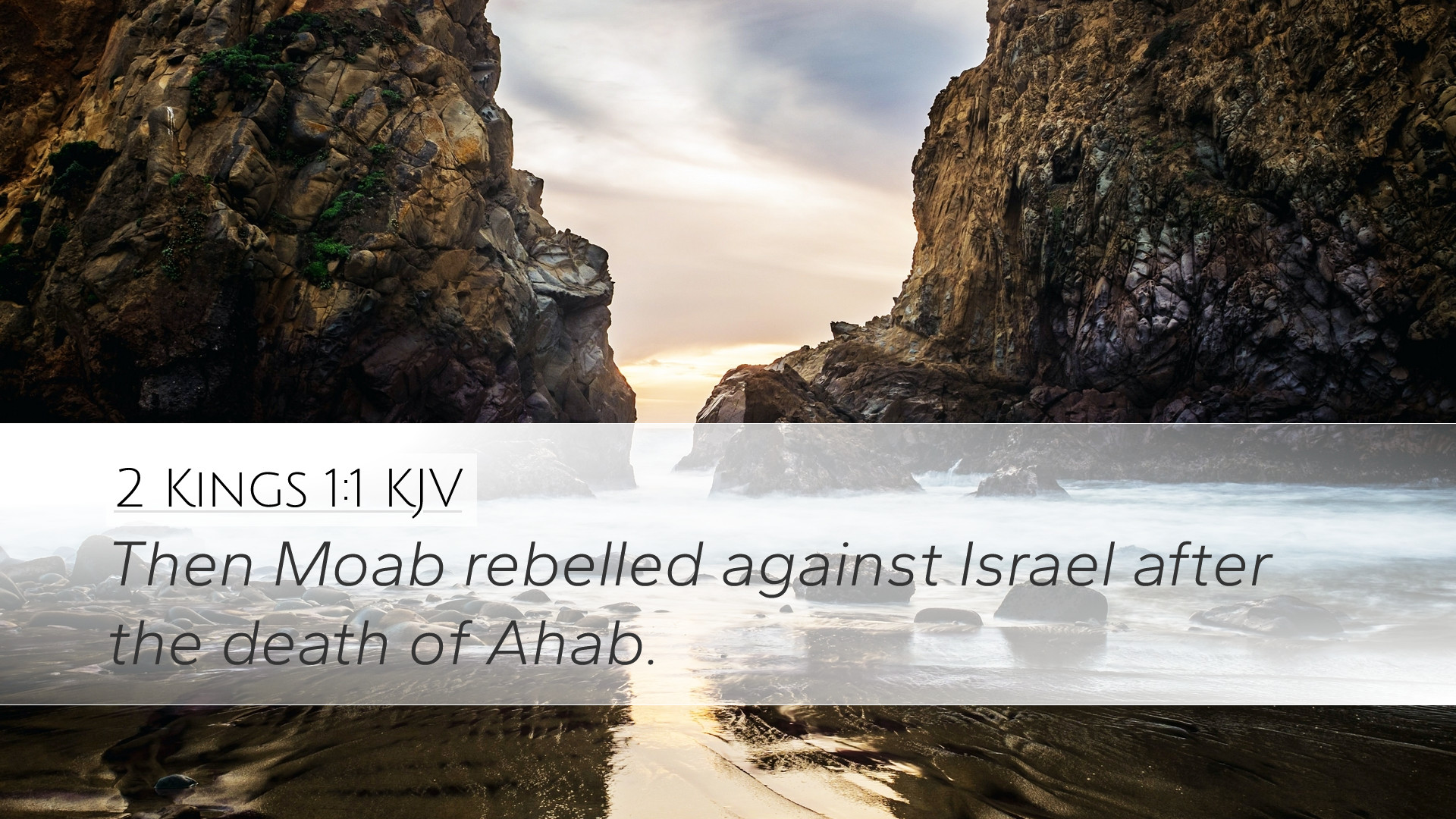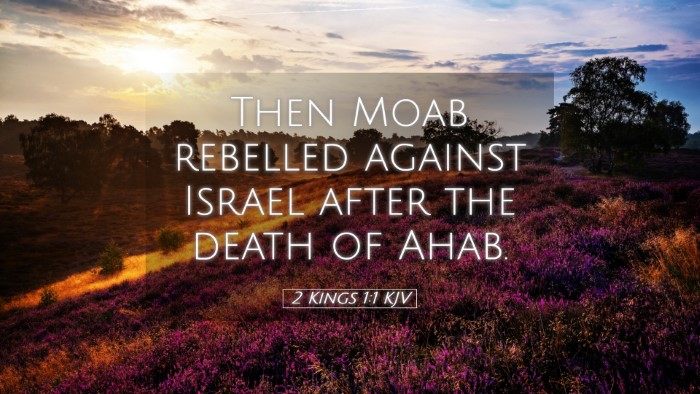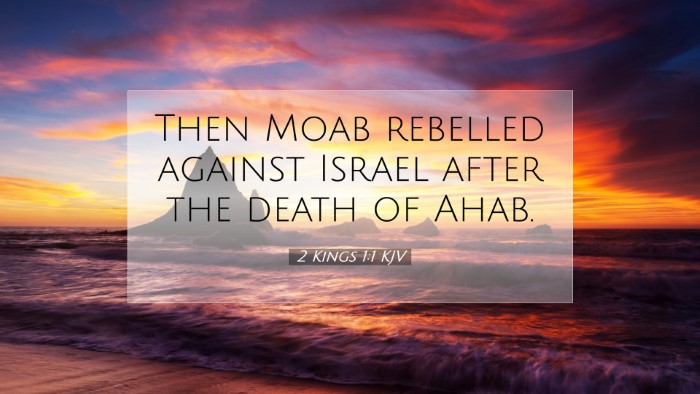Old Testament
Genesis Exodus Leviticus Numbers Deuteronomy Joshua Judges Ruth 1 Samuel 2 Samuel 1 Kings 2 Kings 1 Chronicles 2 Chronicles Ezra Nehemiah Esther Job Psalms Proverbs Ecclesiastes Song of Solomon Isaiah Jeremiah Lamentations Ezekiel Daniel Hosea Joel Amos Obadiah Jonah Micah Nahum Habakkuk Zephaniah Haggai Zechariah Malachi2 Kings 1:1
2 Kings 1:1 KJV
Then Moab rebelled against Israel after the death of Ahab.
2 Kings 1:1 Bible Commentary
Commentary on 2 Kings 1:1
Verse Context: 2 Kings 1:1 states, “Then Moab rebelled against Israel after the death of Ahab.” This brief and seemingly straightforward statement holds profound significance in the historical and theological narrative of the Israelite monarchy.
Historical Significance
The rebellion of Moab against Israel marked a pivotal point in the trajectory of Israel’s national integrity and geopolitical stability. After King Ahab’s death, the power vacuum created encouraged surrounding nations to assert independence and contest Israel’s authority.
From the Commentaries
- Matthew Henry: In his commentary, Henry emphasizes that the rebellion illustrates the consequences of Ahab's reign and his idolatrous practices. He notes that Israel's spiritual decline inevitably affected its political strength.
- Albert Barnes: Barnes discusses the historical context of Moab's rebellion, suggesting that the Moabites took this opportunity, feeling emboldened against a weakened Israel, particularly during the transition of leadership post-Ahab.
- Adam Clarke: Clarke adds depth by exploring the implications of this rebellion. He sheds light on the socio-political relationship between Israel and Moab and explains that Moab's uprising signifies a broader pattern of disobedience and revolt among Israel's neighbors in this period.
Theological Implications
Beyond its historical context, this verse carries profound theological messages relevant to contemporary believers. It reflects the recurring theme of rebellion against divine authority, both in nations and individuals.
Insights from Scholars
- Matthew Henry: Henry explicates the notion that spiritual disarray within a nation leads to political upheaval. He argues that Ahab’s legacy, characterized by idolatry, left Israel vulnerable to such rebellions. Henry encourages contemporary believers to regard this as a warning about the spiritual state of a nation impacting its overall strength and security.
- Albert Barnes: Barnes points out that the rebellion serves as a reminder of God’s sovereignty and the consequences of a nation's collective sin. He emphasizes that the sins of leaders affect their nations and reminds readers to maintain spiritual vigilance against complacency.
- Adam Clarke: Clarke interprets Moab's actions as indicative of God’s judgment against Israel for turning away from Him. He warns readers about the dangers of failing to heed divine instruction, asserting that rebellion often arises in the context of spiritual neglect.
Expository Insights
In expository preaching, understanding the gap created by Ahab's death is crucial. The context of this rebellion provides a rich ground for reflection and teaching.
Practical Applications
- Vigilance Against Complacency: Pastors can encourage congregations to remain vigilant in faith and obedience, as the spiritual state of a nation affects its wellbeing.
- Leadership Accountability: The influence of leadership is paramount—this verse serves as a foundation for discussions on the importance of righteous leadership and its impact on the moral fabric of society.
- Understanding God’s Sovereignty: The narrative illustrates God's sovereignty even amid rebellion. The faithful are encouraged to trust in God's greater plan, especially during times of turmoil.
Conclusion
2 Kings 1:1 encapsulates a significant transition in Israel’s history—a stage set for divine intervention and prophetic activity surrounding Elijah’s ministry. The insights drawn from public domain commentaries offer a multifaceted understanding of how this rebellion sheds light on the spiritual, political, and theological queries believers face today.
May this reflection inspire deeper study and engagement with the Scriptures, enriching the hearts and minds of pastors, students, and scholars alike.


